Why Not Learn To Love Your Life, Instead Of Only Looking Forward To The Next Weekend Or Vacation?9/21/2019 Mindset, NOT escape, is critical for mental health. In September of 2018, Harvard Business Review published a compelling article on the supremacy of learning versus relaxation: https://hbr.org/…/to-cope-with-stress-try-learning-somethin…. In summary, people who learn and grow WHILE they are ostensibly overworked and over-stressed have better mental health outcomes than people who focus on relaxation as the way to cope. Though escape may often be beneficial, its benefits are short-lived and inferior to simply learning.
Somewhere around 12-15 years ago, I noticed a trend that people who create daily enjoyment are persistently mentally healthier than people who travel often and/or “live up” the long weekend with frequency. In the tens of thousands of gym-goers, many of the regulars were just irrepressibly-happy and content people. Among those people, I seldom heard them tell stories about beach homes, vacations, or getaways. They were most often in town and in the gym on weekends. Their day-to-day lives were so good, by virtue of just daily stress management, that a “break” was actually more stressful than regular weeks. Every week they could point to skill development (strength) or language learning or artistic or musical endeavors. For them, when they would travel, a trip had more to do with immersive learning in other cultures as opposed to escaping a life of drudgery. Then, I noticed it in myself. Don’t get me wrong. I’ve enjoyed being all over the country and all of my international studies and vacations. But I did find a sort of emptiness when I would overspend myself at work before a dream trip in order only to overspend myself at work catching up upon return. It put mental health fulfillment beyond the attainable horizon. Others have tackled this cogently: https://qz.com/…/1…/going-on-vacation-wont-cure-job-burnout/ . Specifically, if you don’t manage most of your week or most of your year, the minority of it that is fun is insufficient to give you a NET outcome of contentment and health. This is also why some studies on retirement show improved health markers while many other studies on retirement show increased risk of depression, cardiovascular disease, and predictable mortality increase. The benefits of relaxation are real. But they are not sufficient. Only a growth mindset is sufficient. Relaxation requires getaways. A growth mindset doesn’t. Thus, we have to be careful what we’re comparing. If we are comparing an overworked depressed person who doesn’t take breaks to an overworked depressed person who does take breaks, yes, obviously the breaks reduce the negativity. But why compare two undesirable situations, only to discover the one that is less undesirable? Why compare two negative ways to live, only to discover which one is less negative? Why not seek a desirable and positive way to live? Why not figure out a way to enjoy MOST of the time, instead of slaving to forget how you hate MOST of your life? I encounter this often. People want to achieve a future or distant point, hoping that it will pay off. It doesn’t. Never has. Never will. But you can obtain learning and growth this day, and every day. I talk a lot about strength. I realize that. I would just as soon talk about learning piano or foreign languages or ballroom dance or painting. They all afford us an immediate and persistent payoff of growth that continues on long after the dopamine high of a party or an idyllic destination. Think about it. When you learn to become stronger, you ARE strong. When you fly to an island, you... once flew to an island. When you learn new words, you ARE more fluent. When you go across the world, you... are back in your cubicle. Waiting to escape is not a great strategy. Running away is a symbol of nonstop defeat. Escaping is emblematic of undeveloped coping. On the other hand, daily learning isn’t just indicative of growth. It IS growth. I would suppose this applies to a workspace itself even. If you continuously encounter exciting learning opportunities within your workspace, why would you want to get away from that? And if your workspace values relaxation time, I would suppose that you don’t JUST enjoy the extra relaxation, but also enjoy every day working for a company that values relaxation. Conversely, if you view each opportunity as time-wasting imposition, of course you better get out of there as soon and as often as possible. If you work for a company which doesn’t value time off, you don’t just get the gut punch of reduced relaxation, you are denied the opportunity to know you’re working for a good organization. That probably doesn’t feel like growth. The goalpost is too low. Many of us are trying to figure out ways to hate our lives less through escapism. Why set the bar so low? Some people set the bar a little higher and seek tolerance or appreciation. Those are fine, I suppose. Absolutely, appreciate your life in a real and deep way. But why only appreciate it? Why not seek a positive in MOST days as opposed to seeking avoidance of negative SOME days? Why not learn new skills and new solutions instead of running from old problems? Why not learn to love your life?
0 Comments
There is an odd American sentiment, leftover from Puritans and teetotalers, that productive behaviors are corrosive. We look at the minority of people who abuse a certain food, agent, or lifestyle, and then we proceed to deem the food, agent, or lifestyle as evil. That fallacy leads us to try eliminating or banning things for the majority. No. Alcohol isn’t bad. Abuse is counterproductive. Caffeine isn’t bad. Abuse is counterproductive. No behavior which helps us perform or manage stress better is bad. Merely, its abuse is counterproductive.
Caffeine is an anti-aging, anti-inflammatory, and mitochondrial efficiency agent. Check the Blue Zones. The longest lived people on earth have coffee and/or tea. Studies confirm that even cardiac tissue works BETTER (take note, I did not say HARDER). Caffeine helps regulate brown fat to counter obesity: https://www.nature.com/articles/s41598-019-45540-1 That all said, there are people who are sensitive to caffeine. When gut health is compromised, caffeine may not be well tolerated. Those with MTHFR gene variants have to microdose and pair with other supplements like b vitamins, vitamin c, taurine and magnesium. And then, of course, we should all fast from certain things periodically. So there should be a season of time every once in a while where we stop, so as to re-upregulate receptors, and ensure we truly aren’t becoming chronic abusers. Regardless, when considering a “taboo” substance, you’d do well to evaluate the known chemistry. Pointing to a statistical analysis is misleading. There are studies which tried to tie energy drinks to tachyarrhythmias. I don’t doubt it. This doesn’t call caffeine into question. It doesn’t call energy drinks into question. It calls wanton abuse and unknown dosing into question. Likewise with a personal anecdote or a neighbor’s scary story about a “caffeine reaction,” that story tells us that the person wasn’t healthy enough and didn’t dose low enough for their given body mass and current status of resilience. That is, if 400mg caffeine strikes you as too much, even when you pair it with vitamin c and/or other management techniques, then try 200. Try 100. Try 50. Try 25. The dose makes the cure. The dose makes the poison. The chemical isn’t good or bad. But how can you utilize it to be productive? How can you abuse it to be counterproductive? Those are the questions. And, if you can’t find their answers, then don’t have it. That’s fine too. Just please stop vilifying it in the face of understood mechanisms. That’s unscientific, purposely unsophisticated, and disingenuous. It’s a leftover sentiment from a bygone American era. Caffeine could help someone you know survive. Even when the calories and nutrients are controlled, there is a negative impact of processed foods versus less/unprocessed foods: https://www.cell.com/cell-metaboli…/…/S1550-4131(19)30248-7…
We like to think we can check labels and track. I’m a pragmatist. So convenience can’t be dismissed. If it works, it works. However, when it doesn’t work, it doesn’t work. And sometimes we have to face the harsh reality that the convenience of highly processed food may be the very issue. Personally, I’ve run into this problem before where I was hitting all my numbers and couldn’t get leaner. It turned out that a deli turkey meat I was obtaining from Target was padding their weight with corn starch. It made the package about 30 grams light on protein, even according to their own label. And that’s just what they were willing to list on the label. When I traded it out for a LESS lean option, I continued to cut down again. That is, my caloric content stayed or went up and I LOST more body fat. Was it the corn? Was it something else? But it doesn’t matter. All that matters is that I was willing to accept that something I was doing was unproductive. When people aren’t ready for this step, no worries. We can’t force something. However, when you are willing to reconsider anything, the solutions tend to present themselves. When in doubt, throw a behavior out. Calories in/out is a misleading and insufficient description. It is not an explanation with any predictive value. The majority of weight in a human body is tied up in molecules which have no biologically meaningful caloric content: water and minerals. Instead of trying to affect mass by tracking energy, try affecting mass with mass. Or stay with your energy equations; but stop weighing in.
We have a societal fixation on weighing our bodies. The people I know who obsess the most over this don’t weigh the water they drink or food they eat. They may tabulate calories; but they can’t tell me the weight they’ve added to their system in a week. Cool. You suppose a potential energy unit is going to dictate mass transfer while you have no idea how much mass you’ve added and subtracted from the system? That’s cute. If you don’t know how much mass you’re adding, why are you weighing in at all? If the weight of your food and the weight of your water is all over the place while you think you’re controlling the energy equation, I’ve got news for you. But a pound of fat has 3,500 kcal, so it should be a real straight-forward approach, right? Nope. It takes more than the potential energy in a substance to convert that substance to something else. The estimates for using up a pound of fat are in excess of 4,000 kcal. However, as your body tries to lose this mass, applying around 4,200 kcal to loss of tissue, what happens if every day the human animal adds four pounds of mass to the system: 24 ounces of food and 40 ounces of fluid? This is light eating by American standards, by the way. That is, your efforts to lose weight may be removing a whopping 1.5 kilograms of mass per day while you’re adding 3 kilos to the same system. While it’s true that not every kilo is the same (5lbs of water and cucumbers will not be kept as mass in the body at even remotely close to .5lbs of sugar), if you don’t even look at the mass going in versus the mass going out, why bother checking the mass of the human? Your body will do everything it can to adjust metabolic rate to less than your caloric intake. But it CANNOT create mass out of nothing. This is where even macro tracking breaks down. One, without our own lab and bomb calorimetry, we don’t know the exact content of a food. Two, your body will adjust energy expenditure to avoid weight loss at all costs. Thus, in the hardest of troubleshooting, we weigh real food and we weigh water intake. We standardize it. We trim it back. The fastest way to lose weight is just starve and NOT exercise: https://www.sciencedirect.com/…/a…/abs/pii/S0003999395805087 Just one week of inactivity can lose 37% of muscle weight and 61% of strength. With no exercise, there’s no stimulus to maintain mass in the system. Voila. Of course, people don’t want to just lose lean tissue and get fatter as they get lighter. So they do lift. They do workout. Well, then, obviously we have to add some mass to the system to just maintain our musculoskeletal system and organs. How much? Research says, at least 1.2 grams of protein per kilo of body mass. In a lean meat, for a 220lb person, this is just around 1.5lbs of protein-dense food. With water regularized at 64 ounces per day (4lbs), that person has to remove over 5.5lbs of mass from the system per day to see “weightloss.” How much mass do you bring in, keep, and remove per day? You don’t know? Then don’t weigh yourself. Once you have even a pretty decent approximation, you still won’t need to weigh in, because you can predict. Physical exercise improves mental health. Recently, a 1.2 million person study in the Lancet confirmed this: https://www.thelancet.com/…/PIIS2215-0366(18)3022…/fulltext…
Whole books, like “Spark” by Dr. John J. Ratey, MD, have gone to great lengths to unpack all that is contributed to brain health from exercise. Brain-derived neurotrophic factor, as one example, may be nearly absent in sedentary adults while teeming in active individuals. BDNF allows the human brain to rewire, not just amplifying the learning process for new skills or languages, but also rewiring in ways that allow the brain to learn how to not be in pain, how to not be depressed, how to not be anxious, how to not be as sick, how to not be as inflamed. Since some of these mechanisms are well understood, the outcomes are unsurprising. Moreover, it begs the question about the direction of causality. People tend to think that when they see body composition results, that makes them feel good, reinforcing the behaviors that led to the body composition change. But it’s likely precisely the opposite. That is, when you exercise out of a responsibility of mature self-care, you feel better emotionally. That emotional improvement, paired with the brain’s newfound capacity for amplified learning, consequently improves chances of body composition changes. In fact, we know this must be the linear relationship. One, we know that almost 100% of people who achieve major body composition improvements throw away the results within 2-3 years. So achieving a “look” doesn’t have anything to do with long term success. The emphasis on appearance, as opposed to implementing consistent healthy behaviors, DOES NOT YIELD LONG TERM SUCCESS. Two, we know that only people who implement healthy behaviors for the sake of consistent beneficial fitness are the ones who still have body composition improvements at 5, 10, 15 year followup. The causal line is exactly inverted from our societal expectation. Thus, we must conclude, as has already been done ad infinitum in psychology, that the best results aren’t easily seen. They are working underneath the surface, re-contouring the build of the brain, re-sculpting the wiring of our emotions, re-learning how to claim control and agency over our destinies. Physical activity isn’t an imposition. It’s not a temporary patch on a broken soul. It’s a daily necessity, like breathing oxygen. We’ve so contorted and perverted the idea of exercise that we’ve made it a difficult and inaccessible behavior for ourselves. People say, “I hate working out.” But the truth is that we hate what other people have defined for us to be “working out,” while our soul craves regular and consistent activity. Instead of aversion, we have to view it like a major part of the purpose for the human animal. We cannot live one day without a major component of our human purpose. It may be a walk. It may be a “workout” in the conventional sense. But whatever it is, it must be, if for nothing else than the basic mental health which leads us to be our better selves. There aren't a lot of power athletes who "inexplicably" get strokes and heart attacks. And I'm not implying that endurance athletes have a high prevalence of those incidents. But it definitely seems to happen more often, even if infrequent. Many prior studies have tried to weigh the benefits of variant forms of exercise. And usually, they find benefits in all kinds. I tend to agree with that assessment. BDNF (a growth factor indicative of brain health improvement) is certainly more associated with aerobic exercise, yet doesn't have zero increase from anaerobic training. This study (https://jamanetwork.com/journals/jamacardiology/article-abstract/2737412), however, shows the heart-health benefits of lifting.
And they seem to outweigh those of standard cardio training. What 's been really interesting to see over the years is the layperson's reliance on medical professionals for nutritional guidance when American Medical training specifically aims to make its graduates ignorant about nutritional interventions. This has been a growing problem which the American Medical Association itself is increasingly acknowledging: https://www.cardiovascularbusiness.com/topics/lipids-metabolic/doctors-ignorance-nutrition-affecting-patients?fbclid=IwAR2c1pclNVulzTy1st6nZL9yE1U9PsTuJ4gMp3UqCiVsc08V44Xo1qUEd4o
There have now been multiple papers in JAMA, The New England Medical Journal, The British Medical Journal, Annals of Internal Medicine, and many other reputable and authoritative bodies in science and medicine on this subject. The summary is that the most elite of medical schools spend a maximum of 18 hours on nutritional education. STOP. Ponder that. That isn't 18 CREDIT HOURS. That's 18 hours. And this number is still pretty giving, because the inclusion criteria is anything related to dietary guidelines. So, basically, out of all the years of medical training, that amounts to 2-3 days of class work concerning nutrition. Moreover, 61% of study respondents reported "no training in the area" of nutrition. None. Think about that. Eighteen hours at max, YEARS AGO. Zero hours at minimum. This isn't an indictment on any one individual. Medical doctors are brilliant. In their areas of expertise, they are to be revered, and their opinions and guidance considered well. But, as Neal D. Barnard, MD (adjunct associate professor at the George Washington University School of Medicine and president of the Physicians Committee for Responsible Medicine) said, contemporary treatments include drugs and amputation for Type II diabetics when it's now established scientific fact that diet is the cure. Since a vast majority of clinicians were never trained on this, they don't even know it. And that's just one simple and very sad example within diabetes treatment. I've discovered as bad or worse treatment plans for individuals with autoimmune, chronic diseases, hormonal imbalances, and inflammatory conditions. Nutrition isn't necessarily the CURE for all of them. But there are established strategies within diet which ought to be included in a treatment plan. Perhaps in some cases this would mean ONLY nutritional strategy. But in all cases, better dietary advice would improve outcomes. At least that's what the foremost authorities on medicine are saying about themselves. There is an area of research which has long hoped to be the linchpin in understanding human health: bacteriology. Different microbes play variant roles in human health. Since we know that different bacteria affect us in multitudes of ways, it wasn’t a far cry to believe that proactively eating probiotics was a good idea.
Between supplements and fermented foods, we went gaga for the highest and broadest count probiotics, yogurt, kefir, kimchi, and so forth. Unfortunately, the continuation of research found no measurable positive outcomes, in part because most (over 90 percent) of the bacteria in the human body is anaerobic (thus necessitating fiber to proliferate) and also because all of the popular strains are destroyed by stomach acid and bile. Any benefits people received from sauerkraut likely had more to do with the fiber content, not the trillions of probiotics therein. It’s a complex subject which dodges about any time someone tries to make a grand sweeping generalization. Some otherwise benign strains become very damaging to human health when they are out of balance. It isn’t as simple a subject as “good” and “bad.” That all said, more discoveries are afoot; and it appears that spore-based probiotics (these are strains with the genus Bacillus), even when encapsulated and taken as a supplement, DO show promise to beneficially affect humans: https://www.wjgnet.com/2150-5330/full/v8/i3/117.htm In human and other animal studies we have found definitive causal relationships between gut bacteria and obesity, anxiety, autoimmune diseases, etc. Many people hoped we could, therefore, just swap in and out certain strains and all would be well. Perhaps one day. For now, it’s just a fair bit more complicated than that. Nonetheless, people who are struggling in various domains of health and fitness wouldn’t be ill-advised to run experiments with fiber and modest intake of spore-based probiotics. Both have reproducible and reproduced scientific findings to back them. The more popular strains in supplements and fermented foods don’t have reproducible outcomes, are mostly a waste of time, and in some cases prevent the proper recolonization of healthy gut bacteria: https://www.google.com/…/2178860-probiotics-are-mostly…/amp/ You ever brush your teeth before you go in for a dental cleaning?
You ever clean your hotel room before the housekeepers come? With fitness, come as you are. If a facility has an intimidation factor, then find another one. But I have to tell you that at even the most showy places I’ve been, where everyone has makeup and spandex and is wayyy too into themselves, there is little about which to be intimidated. The fact of the matter is that those people are so into themselves that they barely notice anyone or anything else at the gym. The most judgmental you may think others are, I can tell you with the utmost confidence that they are 100 times more judgmental toward themselves, usually pathologically so. That all said, there are such good arrays of options available that you need not let a facility dictate your start of program. Most initial exercises can be done without equipment. And when we view strength as a lifelong skill, like practicing an instrument or language or artwork, you need not get wrapped up in how advanced anyone appears to be at any point in time. Just work the practice. Please don’t get in shape before you get in shape. Some days I’m vegan. Some days I fast. Some days I eat candied meal worms and alligator from the Beef Jerky Outlet @mallofamerica.
What I never do is operate from a perspective of “can’t”. People ask if I “can’t” have certain foods. I can have whatever I want however I want whenever I want. But from time to time, with certain foods, I just DON’T. Big difference. If you need to gain bone density and muscle, DO protein. If you need to get lean, DON’T overeat processed crap, sugars, high starches, etc. CAN anything. DO productive. |
Elev8 Wellness
|
LIVE. AWESOME.We offer the highest quality in personal fitness, nutrition, and mindset coaching, helping you achieve your fitness, health, wellness and performance goals no matter the obstacle. With virtual online training and private, in-studio training we make it easier to reach your wellness goals safely.
No more can't. No more not good enough. If you compete in a sport, let your mind no longer hold you back from being the greatest. If you don't, let your mind no longer hold you back from being the best version of you that you can be. Sign-up for a Tour Covid Screen Waiver Elev8 Waiver Become an Elev8 Instructor Space Rental |
6244 lyndale ave. s., minneapolis, mn 55423
|
© 2021 Elev8 Wellness LLC. All Rights Reserved. site map | contribute | SITE BY Sproute Creative


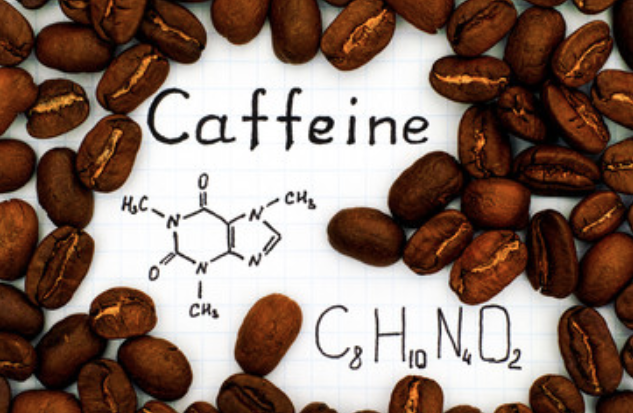

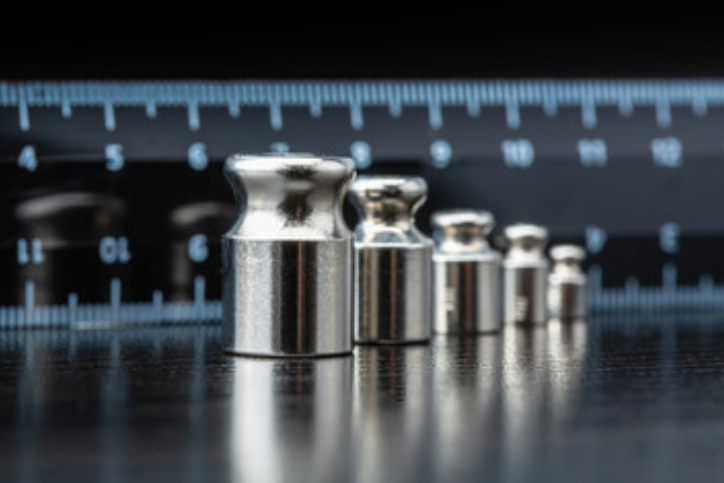

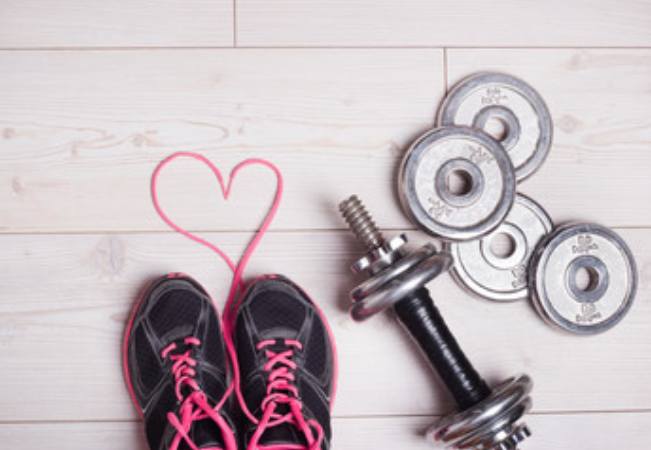
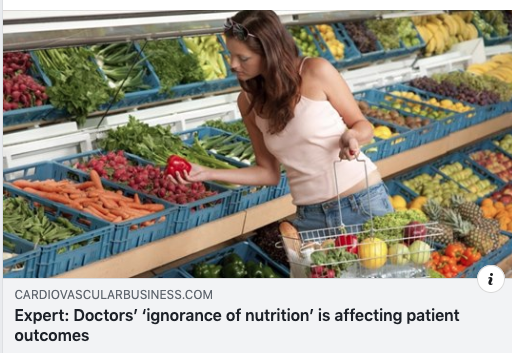
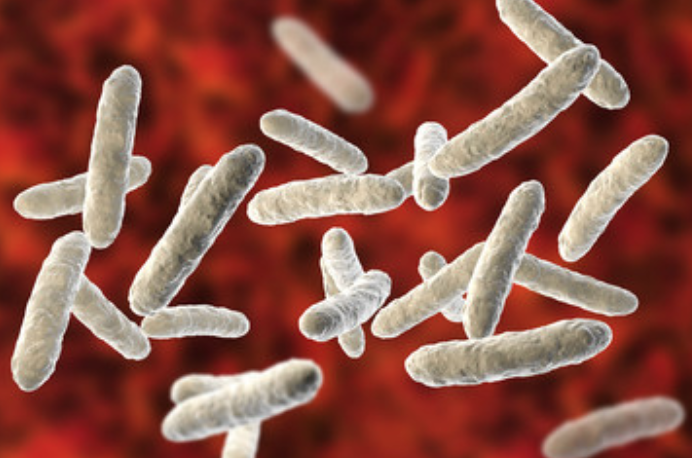


 RSS Feed
RSS Feed
